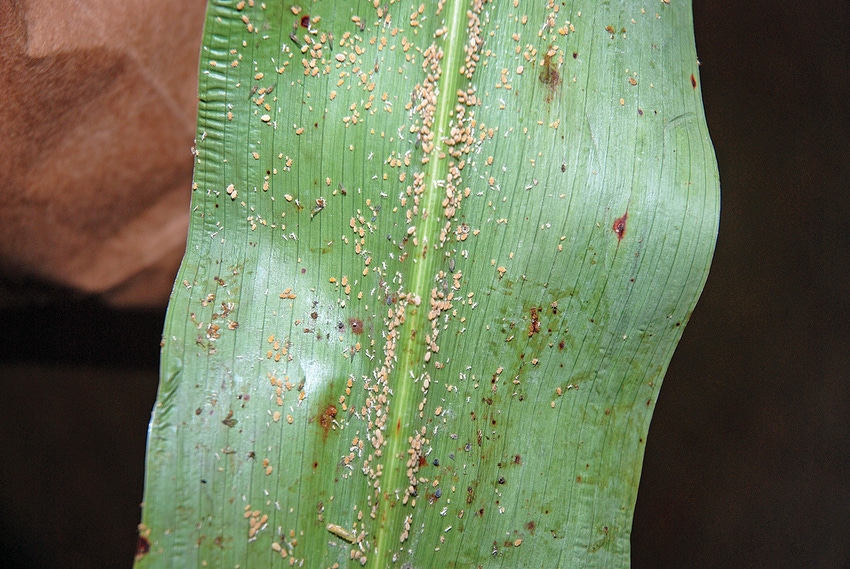March 31, 2015

EPA has granted Section 18 emergency use exemptions in Mississippi and Louisiana for the application of Transform WG insecticide for control of sugarcane aphids in sorghum.
Section 18 approvals for Transform were issued earlier this year for Alabama, Arkansas, Georgia and Texas for 2015. Last year, Section 18s were granted in several states for control of sugarcane aphids in sorghum.
The sugarcane aphid has spread like wildfire across Southern states in just one year, decimating grain sorghum crops in its path, said Angus Catchot in Sugarcane aphid potentially devasting to grain sorghum, a recent article by Delta Farm Press editor Hembree Brandon. In uncontrolled situations, grain sorghum yield loss can be total.
“In 2013, we started hearing reports out of the Texas Coastal Bend area and Louisiana about this pest,” said Catchot, Mississippi State University Extension professor of entomology and plant pathology. “Late that year, they were confirmed in one western Mississippi county. In 2014, they were in every Mississippi county that had grain sorghum. And I’m sure they were in a lot more counties on johnsongrass, which is also a host. In just one year, it had moved from Texas all the way to South Carolina. That’s how rapidly they spread.”

VIDEO: Angus Catchot discusses sugarcane aphid threat.
Anyone planning to grow grain sorghum this year “needs to be aware of what can happen with this pest and how it can affect their crop budget.”
“If you grow grain sorghum, you’re probably going to have to deal with this pest. It’s an absolute must that you have your fields checked twice a week once aphids are first observed. That means you’ll have to budget more for your consultant to do this. If you scout just once a week, your crop can experience loss before you know it.”
A seed treatment, he says, can make a significant difference. “If you grow this crop, a seed treatment, either clothianidin or thiamethoxam, is going to be an absolute necessity. They work really well, and give you about 40 days protection, to about the pre-boot stage.”
In 2014 plots, Catchot said, Transform applied about the time heads were fully out and aphids were at the 25 percent to 30 percent level, provided control, “but we still had a 67 percent yield loss where we did not apply follow up applications. Even for an infestation that started as late as the soft dough stage, we still had a 21 percent loss. This pest can be damaging even very late in the growth process if not properly controlled.”
“Sorghum growers in affected states need effective tools to combat the devastating impact of sugarcane aphids,” says Todd Pilcher, product manager, Dow AgroSciences. Sugarcane aphids feed on plant sap, causing the foliage to turn purple and yellow and reducing yield. The aphid also produces a sticky honeydew that collects on leaves and stalks, creating reduced harvest efficiency and clogged combines.
Transform, said Pilcher offers a seven-day pre-harvest interval for forage and 14-day pre-harvest interval for grain. Transform also has a 24-hour re-entry interval and has minimal impact on beneficials, he said.
Refer to individual state Section 18 labels for complete application guidelines and limitations.
Transform WG, a Dow AgroSciences insecticide introduced commercially in 2013 in cotton, potatoes, canola, soybeans and other crops.
About the Author(s)
You May Also Like






